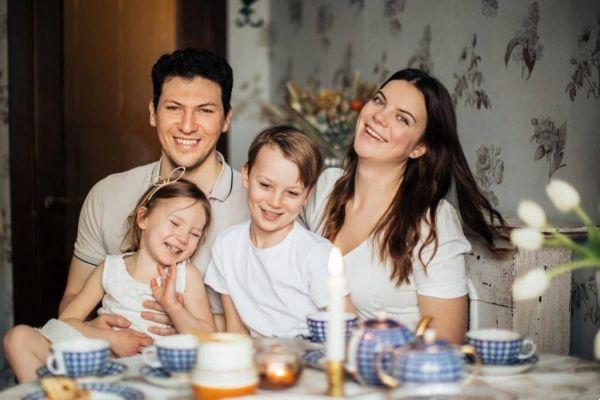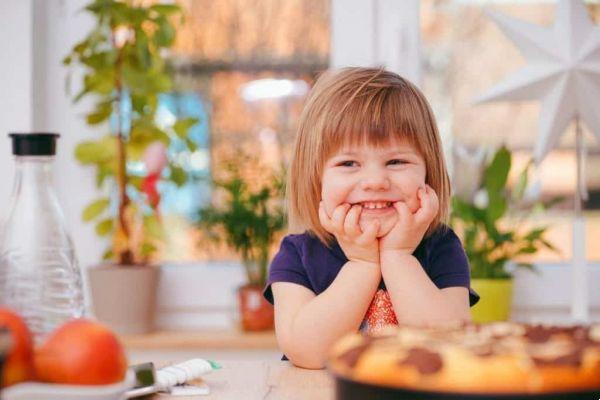What do you lose by letting the fear of being judged dominate important situations in your life? What is the weight of shame in your professional performance? How has the feeling of feeling inadequate has hindered your self-confidence? How do these emotions and feelings impact your relationship? And your personal life? What do you miss out on? How much do you stop earning?
But, Rafa, what does this have to do with children and beggars? Trust and come with me...
What you're about to read can help you free yourself from some of the shackles that hold you back from these potentially destructive feelings and emotions.
I once mentored a person who was extremely unhappy with his professional reality, was immersed in his emotional darkness and this affected his whole life, especially his relationship. This person was married and wanted to change careers, but was extremely insecure and her destructive emotions and feelings were also affecting her physical health. She was afraid of what her spouse and family would say, of their reactions, afraid of not having support, afraid of not being good enough, ashamed of having to sell and market herself, and a host of other fears.
Imagine this situation. Can you imagine? What was this person missing?
Live a more meaningful life. Show your true potential. Develop skills that can bring more results. Healthier and happier relationship. Achieve more personal and professional goals. Peace of mind. Personal achievement. What was this person getting? Anxiety. Deep sadness (or even depression). Emotional/existential emptiness. Low self-confidence. Feeling that I wasn't good enough. He was living in his mental prison.

In the broadest sense, everything in life is always about relationship: nothing exists that is not defined, and that does not acquire its meaning through a relationship with something else.
This is no less true of human beings. Nobody exists in isolation. From our childhood, and indeed from our very first conception, who we are, how we are and, to a significant extent, who we will become, largely depends on how we are raised and the environment in which we develop. In other words, it depends a lot on our relationships. And not just from other people's relationships with us. But also and mainly of our relationship with ourselves.
If we start a relationship with an internal sense of insecurity, we are likely to be suspicious and needy. If we start with an inner sense of wholeness or trust, we are likely to be generous and forgiving.
This is obvious and may seem simplistic. But the emotional aspect of all the relationships we have in life is invariably determined by the quality of the relationship we have with ourselves at that moment.
And where does this come from? Why does this happen and we don't even realize it?
Let's delve a little deeper… In essence, we were not born Spanish, Japanese, American, Chinese, white, black, Christian, evangelical, Jewish. These labels are imposed on us (without our conscious permission) according to where we were born or because they indicate our family's belief system.
We are not born with a sense of distrusting others, judging, ashamed of our bodies or with a racial prejudice already forming in our hearts. We are not born anxious, depressive, nervous… These internalized systems of attitudes and convictions were cultivated in us. Others (mostly our parents) modeled for us and trained us in them. This “indoctrination” happens directly and indirectly, and starts from when we are babies and goes mainly until youth.

As children, we reproduce the emotional energy that surrounds us, but we are unable to be sure which part is us – our true feelings and tastes – and which part is our parents or guardians (others).
We are keen observers of the behavior of our parents and other adults towards us and each other. None of this is accompanied by our conscious understanding of what we are doing, but we quickly deduce what our parents value, and what evokes their approval or disapproval.
You may also like
- What is your life responsibility? Reflects!
- Learn with these 12 habits to have a full life
- Here's How Not to Let Fear Control Your Life
As children, we don't initially approach our world with our parents' prejudices and judgments about what is good and bad. We express our true Self (or true ego) spontaneously and naturally. But soon that expression starts to clash with what our parents encourage or discourage in our self-expression.
And we quickly learn what kinds of (our) behaviors they react to, in ways that make us feel loved or despised, respected or unworthy. And then we started to adapt. We learn to transform ourselves into whatever it is, whatever brings us the most comfort and the least discomfort with them.
We adapt and survive as best we can in this emotional climate. And this strategic adaptation response of ours results in the formation of a survival personality, which does not express much of our individual essence. We misrepresent who we are in order to maintain some level of connection with those we need to meet our needs for attention, care, approval, and security.
In other words, we end up giving up who we really are, our authenticity, our essence, to guarantee this bond with our parents. And many carry this personality of survival into adulthood, ceasing to be who they truly are, to ensure attention, protection, care or even approval from other people, such as a boss, wife, husband, colleague, friend, relatives...
They became hostages to their own emotions in fear of losing this bond and “the gains” provided by the bond.
WHAT TO DO?
Step 1 – Avoid begging for emotional crumbs
Adapting to everyone and most situations shows a true inner self that is hurt, insecure, fragile and scared. Look for a professional, such as a behavioral mentor, psychologist, or therapist.
Step 2 – Access (again) your inner child
Allow yourself to express authentically, naturally, spontaneously. Allow yourself to be wrong. Allow yourself not to know everything and say "I don't know". Allow yourself to explore and discover. Allow yourself to reduce your judgments. Allow yourself to feel gratitude for the simple things in life.
Show your vulnerabilities shamelessly. Understand, you are not being irresponsible. You will be being more human and (re)conquering a lighter life, with less fear and shame and more fullness and happiness!

























